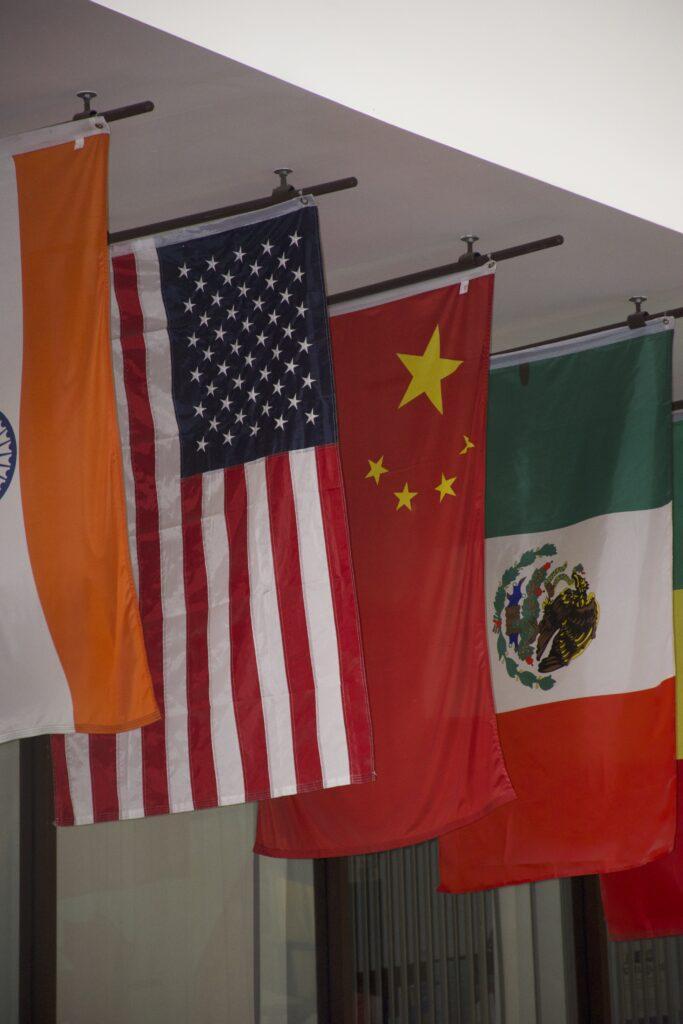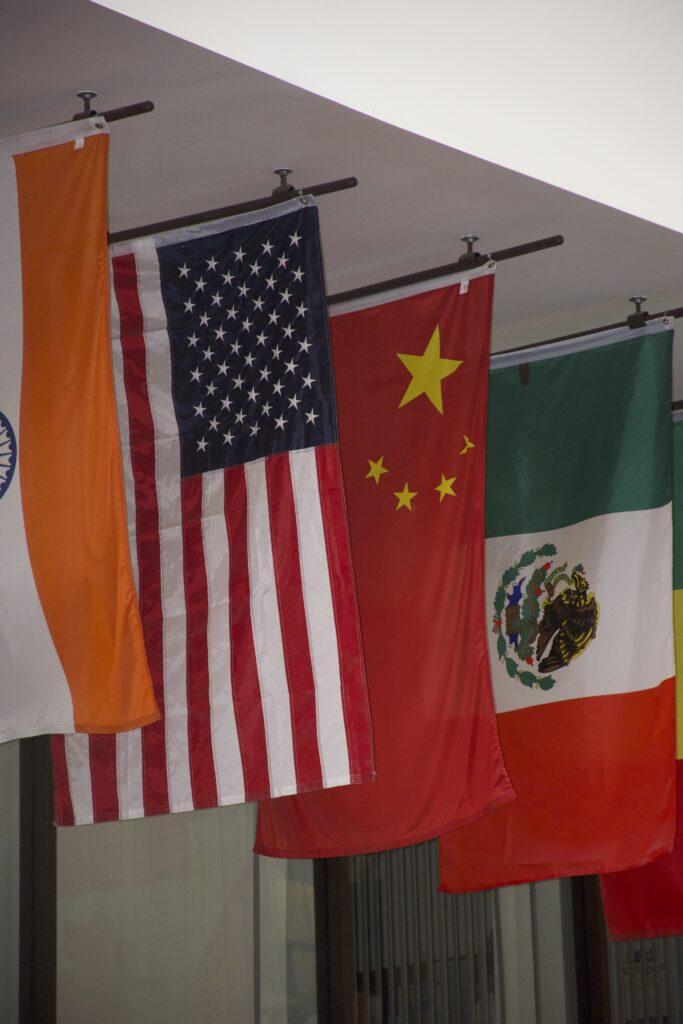The U.S.-China trade war was unsuccessful in its goal of pressuring American and allied multinational corporations to exit China and instead passed down increased business costs to consumers, a panelist said at a Sept. 24 virtual event.
The event, titled “Political Risk and Firm Exit: Evidence from the U.S.-China Trade War,” featured experts shedding light on the impacts of the U.S.-China trade war based on the results of their latest research study of the same title. The event was hosted by the department of government and the Georgetown Initiative for U.S.-China Dialogue on Global Issues, as a part of its Chinese Politics and Economy Research Seminar series, which convenes scholars to share the latest research on China.
The U.S.-China trade war is an ongoing economic conflict between China and the United States that began in January 2018 after former President Donald Trump imposed tariffs on China with the goal of changing “unfair trade practices.” The Chinese government responded by levying its own tariffs on American goods.

Beyond Trump’s stated goals, the intent of the trade war was to pressure American and allied multinational companies to cease operations in China, according to Samantha Vortherms, assistant professor of political science at the University of California Irvine and co-author of “Political Risk and Firm Exit: Evidence from the U.S.-China Trade War.”
“Policymakers hoped that the trade war would encourage decoupling with China, that these policy measures would encourage both U.S. firms and firms of U.S. allies to walk away from China,” Vortherms said at the event.
In January 2020, both the United States and China signed an initial agreement to de-escalate tensions. The agreement addressed intellectual property concerns, agricultural trade and financial services, among other topics, according to the Center for Strategic and International Studies. Despite the agreement, tensions have persisted into the administration of President Joe Biden, as the Chinese government reportedly failed to meet purchasing benchmarks in January 2021, according to CNBC.
The U.S.-China trade war elevated political risks for multinational corporations operating in China, increasing the number of companies who left the country, according to Vortherms.
“The largest effect of the trade war: All firms, regardless of tariff or country of origin, are more likely to exit during the trade war,” Vortherms said.
By July 2019, more than 50 major companies announced their intent to pull production from China as a result of the trade war. But rather than move their operations to the United States as Trump urged, many rebuilt supply chains in Southeast Asia.
The U.S.-China trade war was not successful in its goal of pressuring United States and allied companies out of China as firms could adapt to the increased business costs that the tariffs created, according to Vortherms.
“Multinational corporations that did not experience tariffs saw the largest blunt effects of the trade war. And U.S. firms were less likely to exit than other firms overall,” Vortherms said.
Since the Biden administration took office in January, talks between trade representatives for the two countries have reportedly stalled, leaving tariffs in place, including a 25% import tax. In response, groups representing various U.S. business interests sent a letter to the Biden administration in August, urging the two countries to resume negotiations, according to The New York Times.
Despite the continuing tensions, many businesses have reason to remain optimistic about the future of U.S.-China trade relations, according to Vortherms.
“For supporters of trade, there’s reason to be optimistic because the overarching trend is continuing business as usual. It’s also important to remember that tariffs still affect outcomes: Instead of firms exiting the markets, firms are absorbing the cost of these tariffs,” said Vortherms.
Still, the impacts of the trade war will continue to be felt by consumers until the trade dispute is resolved, according to Vortherms.
“It is still increasing the cost of business — just not to the degree that it’s pushing firms out. And instead, that means that the effect of the trade war is getting rolled down to customers,” Vortherms said.






















Mike Altman • Oct 1, 2021 at 8:46 am
Trump’s trade war was successful in getting America’s politicians united in confronting China on trade. Also, Trump was successful in curling China’s tech ambitions and making a more secure US supply chain. The trade war was never really about deficits, which most economists miss. Also, as an American, I will and would gladly pay more money for non-Chinese goods or heavily taxed Chinese-made junk that is necessary.